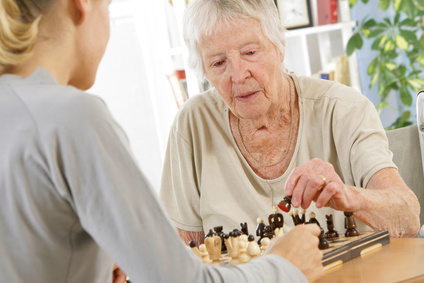While Parkinson's Disease is widely recognised for its impact on motor functions, a myriad of non-motor symptoms can significantly affect individuals living with this neurological condition. This article sheds light on the often-overlooked non-motor symptoms associated with Parkinson's Disease, exploring the diverse challenges individuals may face beyond the characteristic motor impairments.
 Non-Motor Symptoms:
Non-Motor Symptoms:
-
Cognitive Changes: Parkinson's Disease can bring about cognitive alterations, ranging from mild memory impairment to more pronounced cognitive decline. Individuals may experience difficulties with attention, executive function, and information processing.
-
Mood Disorders: Depression and anxiety are common non-motor symptoms of Parkinson's. The complex interplay between neurological changes and the emotional impact of coping with a chronic condition can contribute to mood disturbances.
-
Sleep Disturbances: Sleep disorders, including insomnia and restless legs syndrome, often accompany Parkinson's Disease. Disrupted sleep can exacerbate other symptoms and impact overall well-being.
-
Autonomic Dysfunction: Dysfunction of the autonomic nervous system can lead to issues such as orthostatic hypotension (a drop in blood pressure upon standing), urinary problems, and constipation, significantly affecting daily life.
-
Impaired Sense of Smell: A reduced ability to detect odours, known as hyposmia, is an early non-motor symptom of Parkinson's Disease. Changes in the sense of smell can occur years before motor symptoms manifest.
-
Speech and Swallowing Difficulties: Parkinson's can affect the muscles involved in speech and swallowing, leading to slurred speech, difficulty articulating words, and challenges in swallowing.
-
Pain: Chronic pain, often musculoskeletal in nature, is reported by many individuals with Parkinson's Disease. Pain can be a result of altered posture, muscle rigidity, or other factors associated with the condition.
-
Visual Disturbances: Visual symptoms, including difficulty tracking moving objects and impaired contrast sensitivity, can be part of the non-motor manifestations of Parkinson's.
Impact on Daily Life:
Understanding and addressing these non-motor symptoms are crucial for comprehensive Parkinson's Disease management. These symptoms not only contribute to the overall burden of the condition but also significantly impact the quality of life for individuals and their caregivers.
Management Strategies:
-
Multidisciplinary Approach: A multidisciplinary care team, including neurologists, psychiatrists, physiotherapists, and speech therapists, can collaborate to address the diverse non-motor symptoms and tailor interventions to individual needs.
-
Medication Adjustments: Some medications used to manage motor symptoms may also have an impact on non-motor symptoms. Adjustments to medication regimens, under the guidance of healthcare professionals, can help manage these symptoms more effectively.
-
Lifestyle Modifications: Lifestyle factors, including regular exercise, adequate sleep hygiene, and stress management, play a crucial role in alleviating non-motor symptoms and promoting overall well-being.
Recognising and addressing the non-motor symptoms of Parkinson's Disease is vital for a holistic approach to care. By acknowledging the diverse challenges individuals face beyond the realm of motor symptoms, healthcare providers can enhance the quality of life for those navigating the complexities of Parkinson's Disease. Continued research and a comprehensive understanding of these non-motor symptoms pave the way for more effective management strategies and improved overall outcomes.
At Nursing Home Plus, we're dedicated to helping you find the perfect care home or facility tailored to your unique needs. Whether you're looking for a comfortable place for yourself or a loved one, our team is here to guide you every step of the way. Don't hesitate to reach out call us today at 0230 608 0055 or fill out our online form to get started. Your peace of mind is just a call away!
